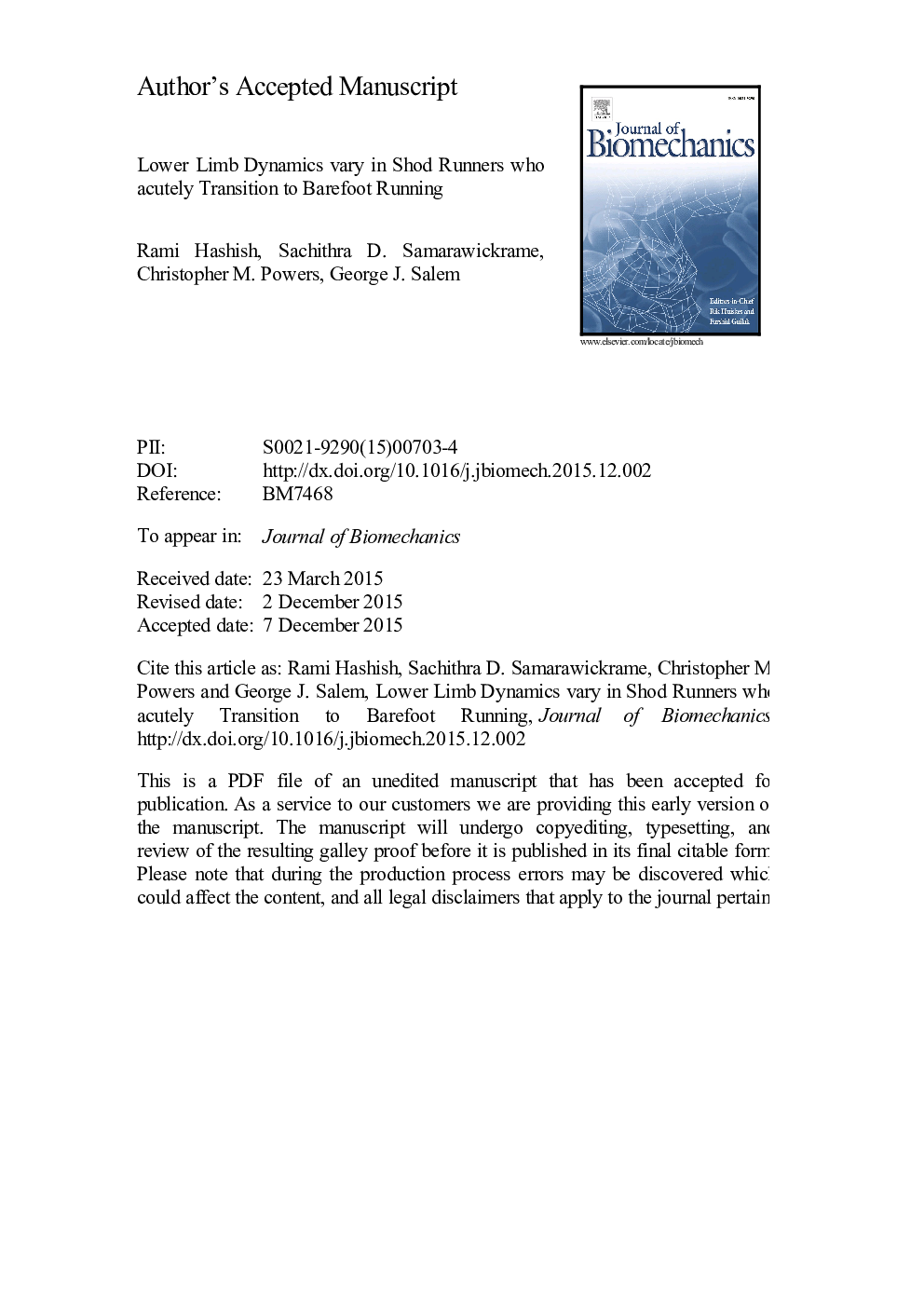| Article ID | Journal | Published Year | Pages | File Type |
|---|---|---|---|---|
| 10431177 | Journal of Biomechanics | 2016 | 19 Pages |
Abstract
Relative to traditional shod rear-foot strike (RFS) running, habituated barefoot running is associated with a forefoot-strike (FFS) and lower loading rates. Accordingly, barefoot running has been purported to reduce lower-extremity injury risk. Investigations, however, indicate that novice barefoot runners may not innately adopt a FFS. Therefore, the purpose of this study was to examine lower-extremity dynamics of habitually shod runners who acutely transition to barefoot running. 22 recreational RFS runners were included in this investigation. This laboratory controlled study consisted of two visits one-week apart, examining habitually shod, then novice barefoot running. Foot-strike patterns and loading rates were determined using motion analysis and force plates, and joint energy absorption was calculated using inverse dynamics. Of the 22 runners, 8 maintained a RFS, 9 adopted a MFS, and 5 adopted a FFS during novice barefoot running. All runners demonstrated a reduction in knee energy absorption when running barefoot; MFS and FFS runners also demonstrated a significant increase in ankle energy absorption. Runners who maintained a RFS presented with loading rates significantly higher than traditional shoe running, whereas FFS runners demonstrated a significant reduction in loading rate. Mid-foot strikers did not demonstrate a significant change in loading rate. These results indicate that habitually shod RFS runners demonstrate a variety of foot-strike and lower-extremity dynamic responses during the acute transition to barefoot running. Accordingly, explicit instruction regarding foot-strike patterns may be necessary if transitioning to barefoot. Long-term prospective studies are required in order to determine the influence of FFS barefoot running on injury rates.
Keywords
Related Topics
Physical Sciences and Engineering
Engineering
Biomedical Engineering
Authors
Rami Hashish, Sachithra D. Samarawickrame, Christopher M. Powers, George J. Salem,
